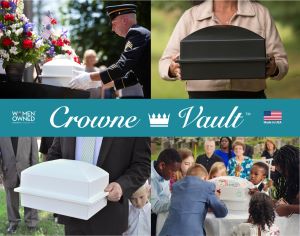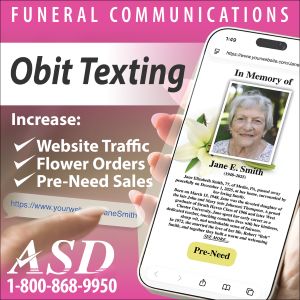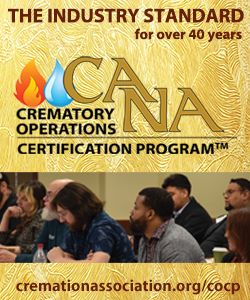Will “Recurring Revenue” come to Death Care?

It’s a staple fact that “Death” only occurs once for each human being. And, in the business world of “Death Care” that’s a fact we have had to live with. A recurring or repeat client is defined by a returning “family” not by repeat business of one individual.
Does that mean that “Recurring Revenue” will never come to Death Care?
First let’s define “Recurring Revenue” as defined by Gemini Artificial Intelligence that states:
“Recurring Revenue is a business model where companies earn predictable income from ongoing customer payments for subscriptions, memberships, or usage-based services over scheduled intervals (monthly, quarterly, or yearly), rather than from one-time sales. This model provides greater revenue predictability and stability, allowing for more accurate financial forecasting and growth planning, and is often measured using metrics like Monthly Recurring Revenue (MRR) and Annual Recurring Revenue (ARR).”
There are items that come to mind rather quickly that are mature forms of Monthly Recurring Revenue (MRR) such as insurance payments, credit card interest, and fitness club memberships. And there are those companies that found a way to do Recurring Revenue in their line of business and reaped incredible benefits and profits from doing so.
Two of the latter that come to mind are Netflix and Microsoft. If you go back a decade or so before streaming there was video or CD rental stores where you would rent a video or CD movie for a set fee for the night. Upstart Netflix competed by offering these videos or CDs by mail for a flat monthly fee — for that fee you could access as many movies as you would like. . . . . And Microsoft, they moved from being paid a set fee by the computer company for each computer sold with Microsoft software installed to a subscription service where the purchaser paid an annual recurring fee for the use of Microsoft products via online installation.
Both Netflix and Microsoft profited handsomely and still continue to use Recurring Revenue methods for sales. Even in the world of writing this newsletter blog I need to subscribe to two Monthly Recurring Revenue companies in order to allow for photo images (istock) and distribute the newsletter (Mailchimp).
I think that Netflix and Microsoft both realized that you can gain more revenue “over time” than you can for a one-time purchase and there are lots of other advantages of MRR, such as raising fees or adding amenities for a price, that are easier to do in small monthly increments than in a one-time larger cost application.
So, the question should be asked in Death Care. “Can a funeral home or cremation provider gain more revenue “over time” than they can for a one-time services and merchandise purchase at the time of death?”
In funeral service there are funeral home “Software as a Service (SaaS)” providers that provide their services to funeral homes and cremation operators on a monthly recurring model. However, outside of preneed insurance premiums, I’m not aware of any other MRR methods that traditional funeral homes and cremation providers offer to retail consumers.

Tom Anderson
Funeral Director Daily
I also think that funeral homes that can figure out a way to offer their services on a MRR model will reap great benefits when doing so. About the only service that I can think of that would work in that fashion today is some type of grief, bereavement, or mental health benefit. There are suppliers that offer such and many funeral homes offer them free of charge for a time period post-funeral. How about figuring out a way to offer this type of service on a monthly recurring revenue model going forward?
Would families subscribe to it? Are there other services that a funeral home could piggy-back off of — such as estate services that would consolidate a group of benefits consumers would pay monthly for? I challenge you to think of the opportunities.
Or will a company outside the realm of funeral service offer some type of MRR model for funeral or cremation services? I can envision an insurer of “supplemental” insurance coverage such as AFLAC offering a preneed “Direct Cremation Option” upon death for a certain fee per month. And of course, like life insurance, the younger you are when you take the coverage, the less per month it would cost. AFLAC would pocket the fees every month and pay so much, possibly a fixed amount, to a cremation provider upon a death. And, they would probably create higher profits as clients “lapse” their coverage over time.
In any regard, monthly recurring revenue charges are here. I would challenge you to see how many you have — cell phone, gym membership, streaming services, internet services, movie passes, print subscriptions, and the like.
And, I also believe that whoever finds a way to do so with Death Care services will profit from the ingenuity of doing so.
More news from the world of Death Care:
- Despite rising end-of-life costs, directors say there are options. The Valley Breeze (RI)
- Expert warns Wisconsinites on the “upsell” tactics driving funeral costs sky high. WI Proud (WI)
- Proposed Riverside cemetery draws concern over water safety. Video news story and print article. NBC Palm Springs (CA)
- Philadelphia man makes arrangements to have remains transported to West Coast, composted. York Dispatch (PA)
- For 150 years Robinson Funeral Homes has remained a family calling. Greenville Journal (SC)
Enter your e-mail below to join the 3,199 others who receive Funeral Director Daily articles daily
“A servant’s attitude guided by Christ leads to a significant life”




















